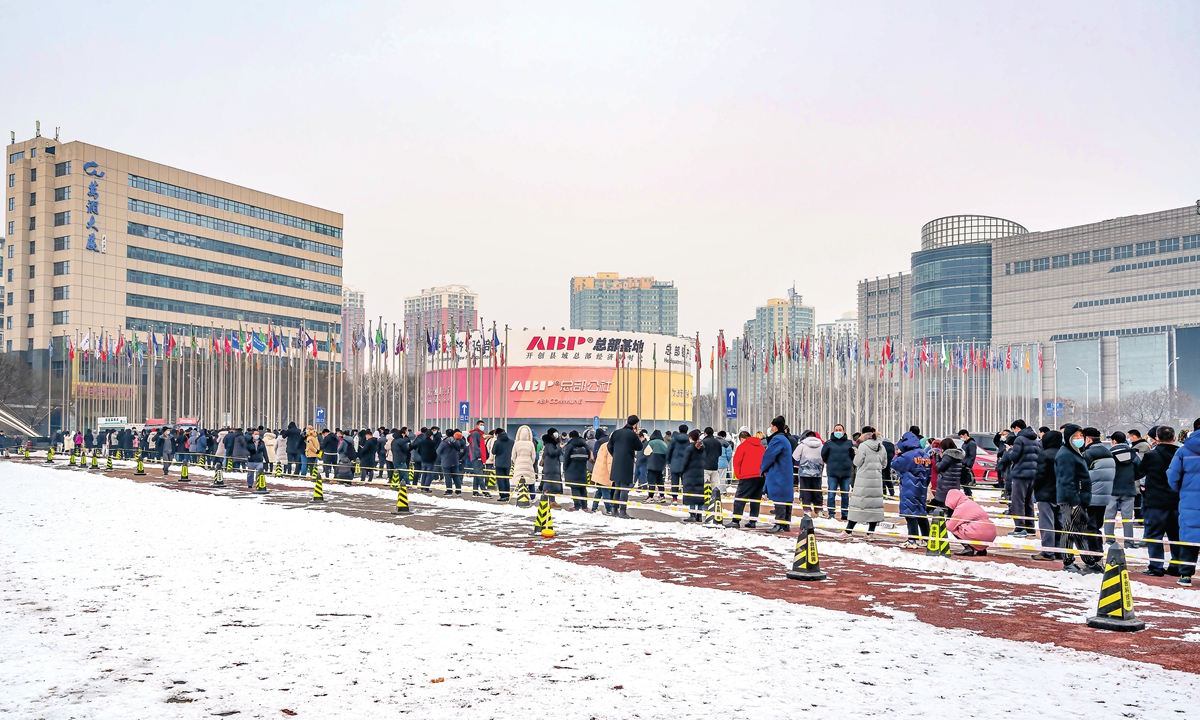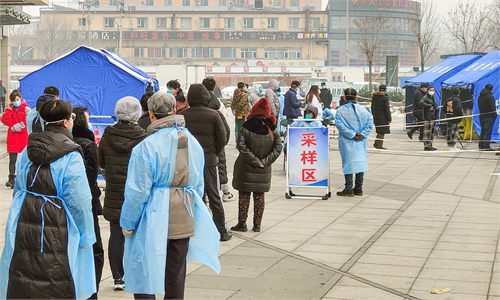
Local residents line up in the snow at a nucleic acid testing point in Fengtai district in southwest Beijing on Sunday. The district started testing of all residents on Sunday after a COVID-19 outbreak connected to cold chain facilities. Photo: VCG
Beijing has strengthened anti-epidemic measures by tightening entry restrictions to Beijing Capital International Airport and suspending some bus lines amid the city's latest round of COVID-19 flare-ups as the capital city reported 15 new local infections in four districts on Tuesday.
Beijing Capital International Airport issued an announcement on Tuesday that requires passengers to enter the terminal buildings after they check body temperature and pass the green code of the Beijing Health Code - a proof of a person's low risk of getting infected with COVID-19.
Some passengers also need to present a negative result of nucleic acid test within 48 hours before traveling to cities with that requirement - there are at least 27 cities as of press time.
The airport has set up temporary nucleic acid testing spots for passengers' convenience.
Besides airport, some lines at Beijing Xinfadi passenger terminal and Liuliqiao passenger transport hub have also been suspended until January 30.
The lines suspended include those from Beijing to some cities in Northwest China's Shanxi, a province where a confirmed case was reported on Monday, and North China's Hebei, a neighboring province of Beijing that reported two new COVID-19 cases on Tuesday.
Beijing has beefed up anti-epidemic measures through wider mass testing, imposing travel restrictions for people in COVID-19 risk areas and requiring residents to take nucleic acid tests for purchasing medicines to cure fever, cough and others. Officials are being more cautious as the city has registered a total of 67 positive COVID-19 infections since January 15.
The city labeled two new regions as COVID-19 medium-risk regions on Tuesday, taking the number to six, along with one high-risk region.
Global Times



